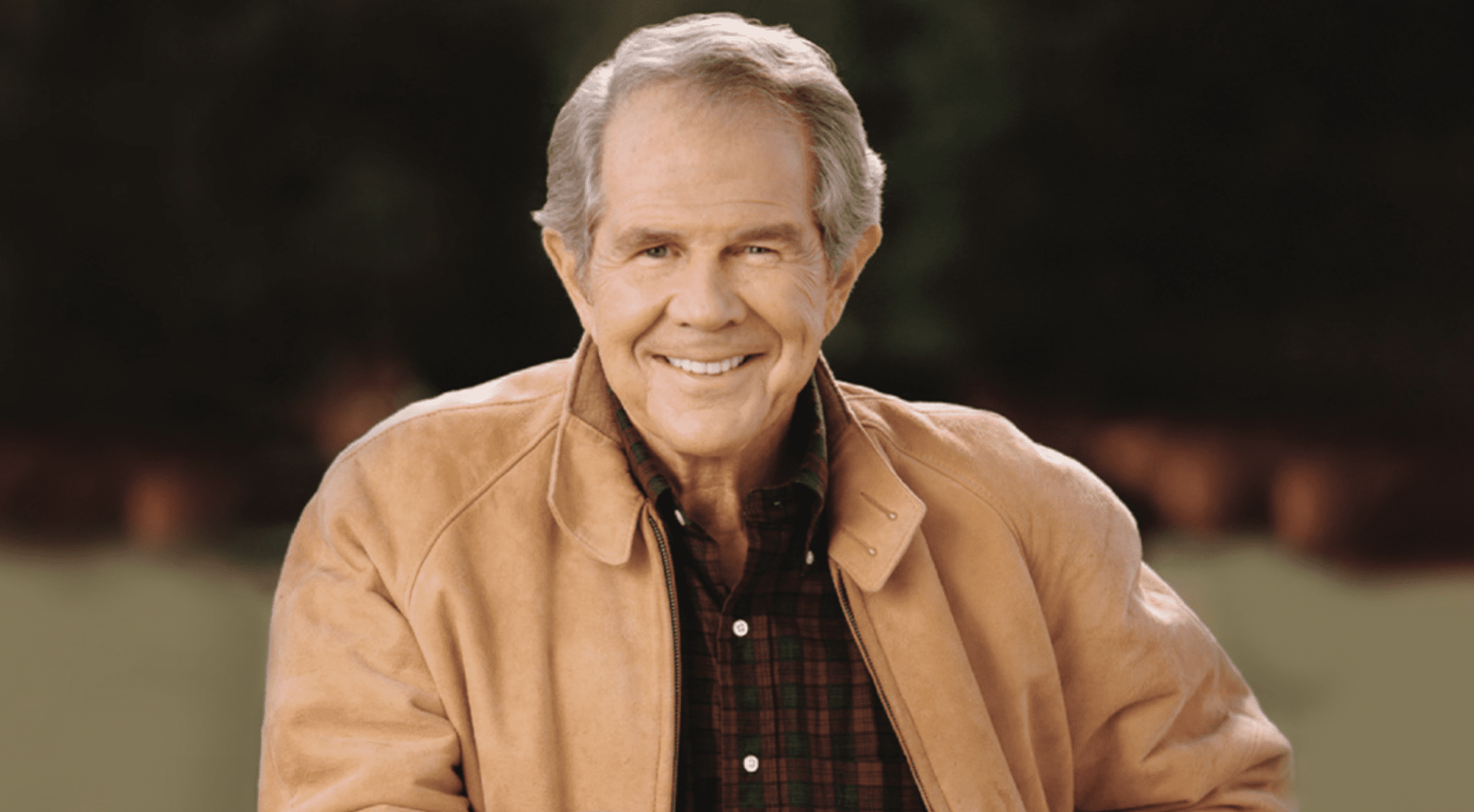For over half a century, Pat Robertson was one of America’s most prominent spiritual leaders. The Southern Baptist minister, who was part of the Charismatic movement within Protestant evangelicalism, built a huge empire in Christian broadcasting. He also got involved in politics, education, religious activism and other areas.
The 93-year-old Robertson passed away on June 8. The reactions were mixed. People from different walks of life and faiths, including Republican presidential candidate Nikki Haley, former U.S. Secretary of State Mike Pompeo, religious leader Franklin Graham and former U.S. ambassador to Israel David Friedman, mourned the loss of his influential voice and friendship. In contrast, several critics actually celebrated his departure from this mortal coil.
Considering the life, career and complicated history of this man, it was predictable.
Marion Gordon Robertson was born on Mar. 22, 1930. The nickname “Pat” apparently came from his older brother, Willis Jr., who happily patted his cheeks when he was a baby and said, “pat, pat, pat.” He came from a successful family deeply rooted in politics and public service. His father, Absalom Willis Robertson, was a conservative Democratic House Representative (1933-1946) and Senator (1946-1966) in Virginia.
Robertson graduated from Washington and Lee University magna cum laude with a BA in history. He earned a law degree at Yale University, where he ranked near the top of his class. He was drafted into the U.S. Army and served in the Korean War. He married his wife, Dede, in 1954, had four children – and were together until her death in 2022.
He initially planned to head into business and become a New York socialite. That changed when he underwent a religious conversion. He earned a Master of Divinity from New York’s Biblical Seminary in 1959, and became a born-again Christian during a dinner in Philadelphia with Cornelius Vanderbreggen, an author and war veteran.
“Deep in my heart, I heard (God) speaking to me about the television ministry: ‘Go and possess the station. It is yours,’” he wrote in his 1972 autobiography, Shout It From the Housetops. And so he did.
Robertson founded the Christian Broadcasting Network in Portsmouth, Virginia in 1960. He purchased the WTOV-TV plant the following year and renamed it WYAH-TV, the first three letters representing the deity Yahweh. CBN grew into a massive media conglomerate with stations situated around the world, including Asia, Africa, India, Germany and the UK. It would branch out in different directions with CBN Satellite Service, CBN Cable Network/CBN Family Channel, Middle East Television in Israel, CBN University (now Regent University) and the Superbook anime series.
Robertson also founded the Christian Coalition, International Family Entertainment Inc., Operation Blessing International and American Center for Law & Justice, among many other ventures.
His success was aided in large part by CBN’s flagship show, The 700 Club. It follows a news magazine program format combined with religious discussions and teachings. There are daily news items, live guests and taped interviews, music performances, Christian ministry teachings and occasional non-Christian guests.
Robertson was a co-host of The 700 Club from 1966 to 2021. He often used his program as a personal, religious and political pulpit of sorts. With respect to the latter, he would run for the Republican presidential nomination in 1988. He had decent results, including a second place finish in Iowa (ahead of then-Vice President George H.W. Bush) and winning Hawaii, Alaska and Washington. Robertson struggled mightily in the larger states and multi-state races, finishing a distant third.
This result wasn’t surprising. Robertson was never perceived as a shrinking violet. He didn’t mince his words, and spoke his mind loudly and clearly. So much so, that his controversial statements, remarks and viewpoints followed him just about everywhere.
Here are some examples.
Robertson was a friend of Israel. “Over the decades, he led millions of his followers in supporting the Jewish state,” Israeli Prime Minister Benjamin Netanyahu tweeted, and “his warmth and steadfast friendship which stood the test of time and circumstance.” He stood arm-in-arm with Jewish allies like Rabbi Daniel Lapin and radio show host Michael Medved. Yet at the same time, he blamed the world’s woes on “European bankers” in The New World Order (1991), which some interpreted as an anti-Semitic trope – and suggested then-Israeli Prime Minister Ariel Sharon’s 2006 stroke was divine intervention because he “was dividing God’s land” in the withdrawal from Gaza.
A puzzling dichotomy, indeed.
He strongly opposed abortion, gay marriage, feminism and other liberal positions to the delight of some, and frustration to others. In a 1986 New York magazine article, the televangelist compared non-Christians to “termites” and believed it was time for a “godly fumigation.” He regularly attacked Islam, describing it in 2009 as a “violent political system bent on the overthrow of the governments of the world, and world domination.” He called Hinduism “demonic” in 1995, and that its belief in many deities “has put a nation in bondage to spiritual forces that have deceived many for thousands of years.”
Robertson even criticized other Christian denominations. “You say you’re supposed to be nice to the Episcopalians and the Presbyterians and the Methodists and this, that, and the other thing,” he said on The 700 Club in 1991. His personal view about these positions? “Nonsense. I don’t have to be nice to the spirit of the Antichrist.”
Honest to a fault, thy name is Pat Robertson.
Committed Christian. Religious leader. Spiritual guide. Family man. Media mogul. Loyal Republican. Controversial figure.
It’s quite a life he led. Love him or hate him, he won’t soon be forgotten.
Rest in peace.
Michael Taube, a long-time newspaper columnist and political commentator, was a speechwriter for former Canadian prime minister Stephen Harper.






